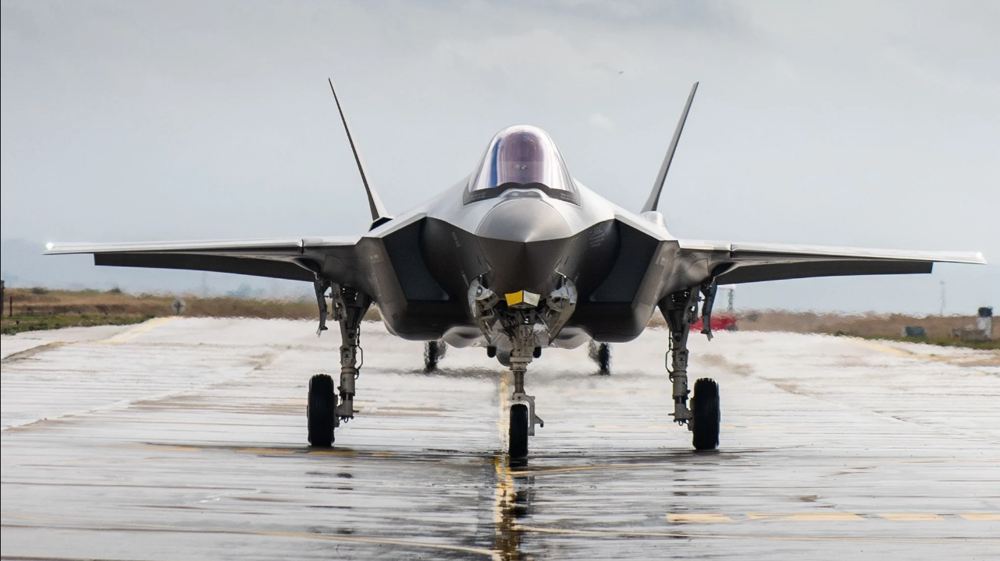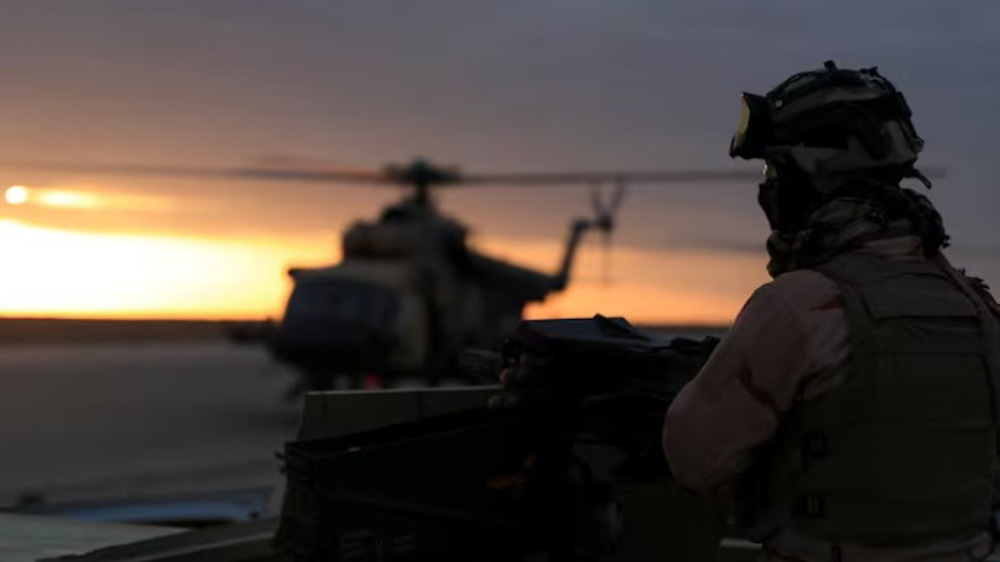US warplanes tried to intercept Syrian jets: Pentagon
US fighter jets tried to engage Syrian Arab Air Force aircraft in Syria but the showdown was avoided as government planes left before the Americans arrived, according to the Pentagon.
Pentagon spokesman Captain Jeff Davis claimed on Friday the US fighters attempted to intercept the Syrian planes to protect American advisers – the term US military often uses for its Special Operations Forces – working with Kurdish forces after the Syrian government jets bombed the area.
"This was done as a measure to protect coalition forces," Davis said, referring to a US-led alliance of some countries Washington says is fighting Daesh terrorists in Syria, but most of the time the US alone carries outs airstrikes in Syria.
Two Syrian SU-24 attack planes attacked Kurdish forces undergoing training with US Special Operations troops around the northeastern city of Hasakeh, but they had left by the time the American jets arrived, Davis said.
He told reporters the US had warned Syria via its communication channel with Russia that it would defend coalition troops, adding the Syrian airstrikes "did not directly impact our forces" but they were "close enough that it gives us great pause."

"We will ensure their safety and the Syrian regime would be well-advised not to do things that place them at risk... We view instances that place the coalition at risk with utmost seriousness and we do have the inherent right of self-defense,” Davis said.
The general command of the Syrian Arab Army said in a statement on Friday evening that Kurdish forces were "attacking state institutions, stealing oil and cotton, obstructing exams, kidnapping unarmed civilians and spreading chaos and instability.”
These actions required an appropriate response from the army, the statement added.
A US military official said in a statement later on that Damascus apparently dismissed the American warning as its warplanes again attempted to fly to the area on Friday.
"The presence of the coalition aircraft encouraged the Syrian aircraft to depart the airspace without further incident," he said. "No weapons were fired by the coalition fighters."
Daesh terrorists, who were initially trained by the CIA in Jordan in 2012 to destabilize the Syrian government, now control large parts of Iraq and Syria. They are engaged in crimes against humanity in the areas under their control.


US warplanes have been conducting airstrikes against ISIL in Iraq since August of 2014. Some Western states have also participated in some of the strikes in Iraq.
Since September 2014, the US and some of its Arab allies have been carrying out airstrikes against Daesh inside Syria without any authorization from Damascus or a UN mandate.
The US-led coalition has done little to stop Daesh's advances in parts of Syria and in Iraq.
Some analysts have criticized the US-led military campaign, saying the strikes are only meant to benefit US weapons manufacturers.
In September 2015, Russia launched its own air offensive against the terrorists who were still wreaking havoc in Syria. The Russian campaign, analysts say, has broken the backbone of ISIL and other militants, and has provided the Assad government an opportunity to defeat the foreign-sponsored terrorist onslaught.
In recent months, the Syrian army, backed by the Russian air power, has been making major gains against Takfiri groups, recapturing several strategic areas from their grip.
VIDEO | Foreign hands, failed chaos
Russia’s Lavrov condemns Western plots for ‘regime change’ in Iran
‘No natural uprising’: Prominent global voices on US-Israeli role in engineering Iran riots
Trump threatens 200% wine tariffs on France to push Macron to join Gaza board
Yemen’s Saudi-backed PLC slams UAE for running secret prisons; Abu Dhabi denies
Swiss MPs move to strip UEFA of tax-exempt status over failure to ban Israeli teams
VIDEO | Massive Michigan pileup sees over 100 vehicles collide in highway crash
Diagnosing the roots of Iran’s economic turmoil










 This makes it easy to access the Press TV website
This makes it easy to access the Press TV website